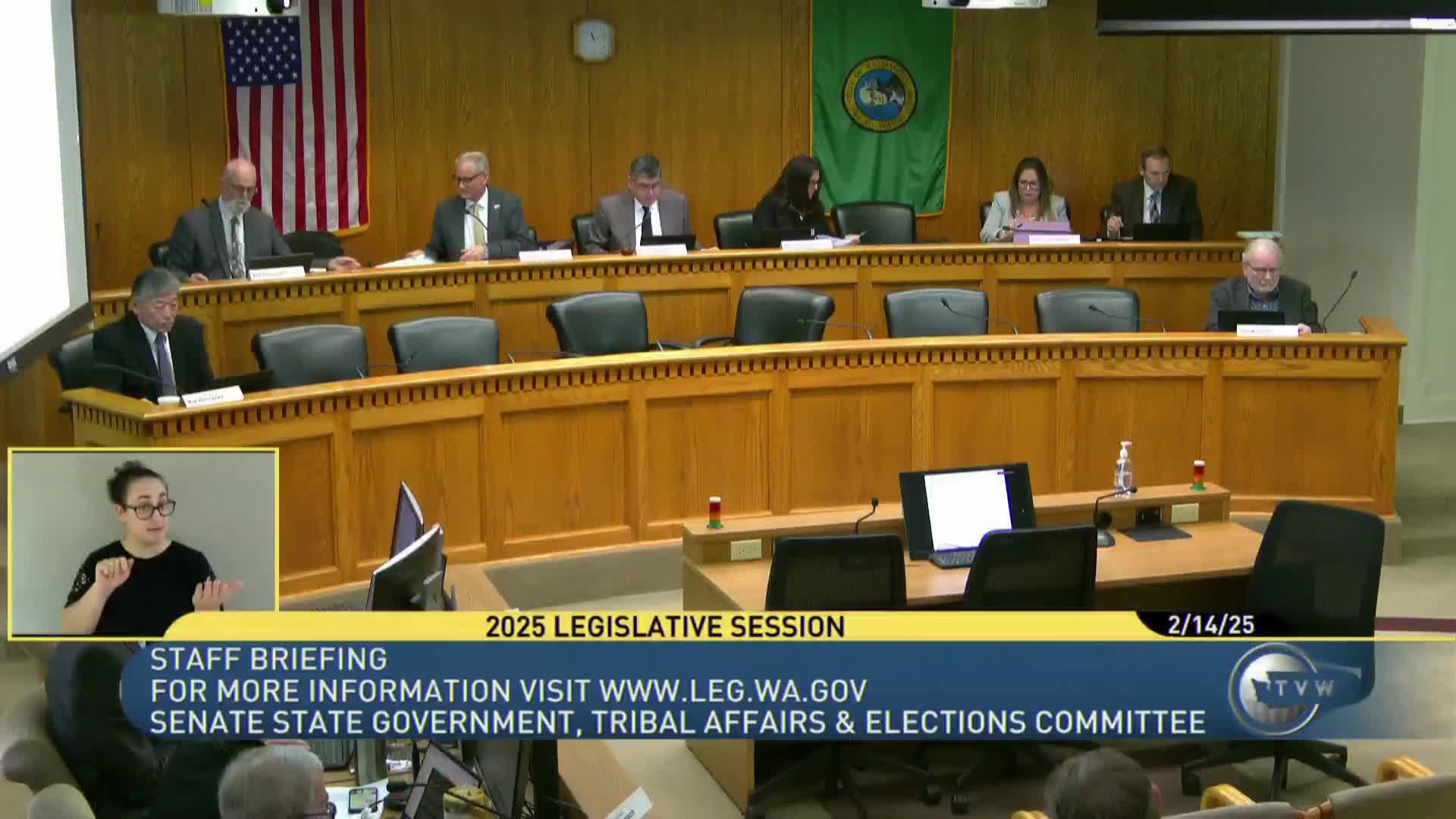Committee hears ‘Balance Act’ to let legislature terminate or limit emergency orders after set periods
Get AI-powered insights, summaries, and transcripts
Subscribe
Summary
Senate Bill 5,434 would allow the legislature to terminate a gubernatorial-declared state of emergency via concurrent resolution when in session and via leaders’ written agreement after 90 days when not in session, and would apply a 30-day limit to orders that waive statutory obligations unless the legislature extends them.
Senate Bill 5,434, titled the "Balance Act," drew a lengthy public hearing on Feb. 14 as committee members, the governor’s office and a range of organizations debated how — and how quickly — the legislature should be able to check gubernatorial emergency powers.
For the record, Danielle Creech, committee staff, briefed the committee on the bill’s core mechanics: under current law a governor may declare a state of emergency that remains in effect until the governor terminates it; some emergency orders that waive statutory obligations already expire after 30 days unless extended by the legislature via concurrent resolution. The Balance Act would (1) authorize the legislature to terminate a state of emergency by concurrent resolution when in session; (2) allow the four legislative leaders (majority and minority leaders of both chambers) to terminate the emergency in writing if the legislature is not in session and 90 days have passed since the declaration; and (3) apply the 30-day automatic-expiration limit to orders that waive or suspend statutory obligations unless the legislature extends them through the same procedures used to extend orders that prohibit activities.
Sponsor Senator Keith Wagoner said the bill is intended to restore checks and balances after the acute phase of an emergency, not to curtail a governor’s immediate authority to act. "Once the ships pass and they're safe, the crew members all become important again," Wagoner said, urging collaboration with the governor’s office and the military department to refine language.
Nathan Bays, deputy policy director for Governor Jay Inslee, testified the governor supports the bill in principle but requested amendments. Bays said the military department should be given a formal role to inform the legislature of operational impacts of terminating an emergency, and urged that orders’ duration be tied to the state of emergency’s duration so that emergency actions automatically expire when the state of emergency ends.
Witnesses including former Sen. Linda Wilson, the Washington Policy Center, Associated General Contractors, NFIB, the Association of Washington Business and a retired county sheriff spoke in support of the bill, emphasizing accountability, legislative oversight of prolonged emergency actions and improved transparency for residents. Several speakers said the bill would not prevent the governor from declaring a new emergency at a later time.
Opponents and commenters raised procedural and drafting concerns: questions about whether requiring leaders' written agreement effectively vests veto power in a single majority caucus outside session; requests for clarity about how many votes are required to terminate a state of emergency by concurrent resolution; and suggested edits to ensure the bill’s language on out-of-session extensions and terminations is explicit.
Committee members asked staff to compile comparisons to other states. Danielle Creech agreed to provide additional research on how other states handle legislative termination of emergencies and on whether concurrent resolutions require simple or supermajority thresholds elsewhere.
No final committee action was taken on SB 5,434 at the hearing; the committee closed the public testimony record after the speakers. The record of written responses indicated broad public input: the vice chair reported 3,467 respondents on the committee’s web portal with 3,377 in favor and 85 against.
Quotes in this article come from the committee transcript and are attributed only to speakers identified in the hearing record.
